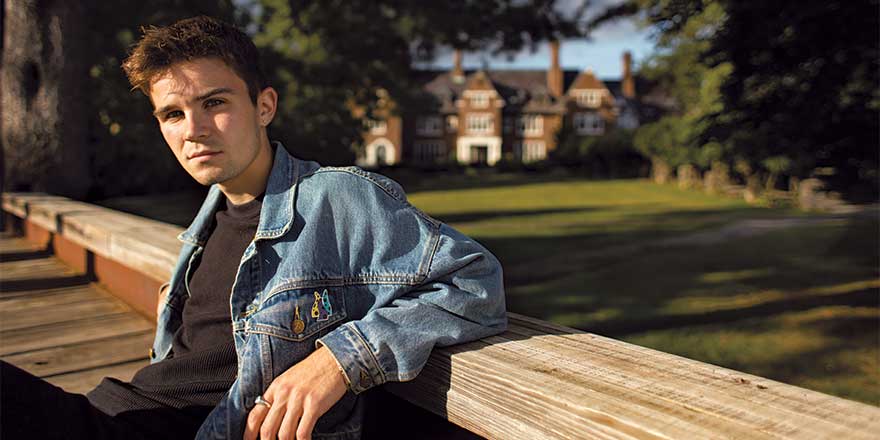
George Scott takes environmental science and urban ecology personally—he’s a fourth-generation New Yorker and has seen firsthand how issues like water quality and pollution can affect a city. When he was looking for a college where he could immerse himself in environmental issues and play soccer, the opportunities and freedom at Sarah Lawrence stood out.
George grew up right on the Hudson River, and the past two summers found him just a few miles upstream interning at SarahLawrence’s Center for the Urban River at Beczak (CURB), an environmental research and education center in Yonkers. CURB runs a bevy of programs, from pre-K education to an EPA-certified lab where George helps with water quality testing and monitoring the Hudson River and its tributaries.
“We’re testing for enterococcus, which is fecal indicator bacteria,” George said. “Normally when sewage is processed it goes to a treatment plant through a pipe, but when it rains or snow melts, the plant overflows and can’t process all the water in time, so it gets dumped directly into bodies of water, like the Hudson—which is where our work comes in.”
While CURB focuses on the Hudson River, New York isn’t alone in this problem—it’s part of urbanization, something George is constantly exploring in his classes and conference work.
“My conference project for ‘Biodiversity and Conservation Ecology’ was a research proposal where I designed an experiment as if I had unlimited money,” George said. “I decided on a longitudinal study of every single section of the Saw Mill River, analyzing enterococcus. I ended up doing another version of it for ‘Environmental Metagenomics’ with my faculty don, Michelle Hersh, last year.”
George often finds himself returning to urban ecology during conference work, and enjoys that his classes can exist in conversation with each other—one particularly rich element of studying environmental science in a liberal arts context. He recently took a sociology class, “Changing Places: Sociospatial Dimensions of Urbanization,” with Shahnaz Rouse, and utilized his knowledge of urban ecology to write a conference project on the social history of Central Park.
“With my sociology class, I was still able to think about green spaces in cities, just from a different perspective, which I think is really helpful,” George said. “I can utilize conference projects to keep building my knowledge on specialized topics, whether they’re directly related to the class or not.”
Hometown Manhattan, NY
Studies Environmental Science and Photography
Pronouns He/him
I can utilize conference projects to keep building my knowledge on specialized topics, whether they’re directly related to the class or not.